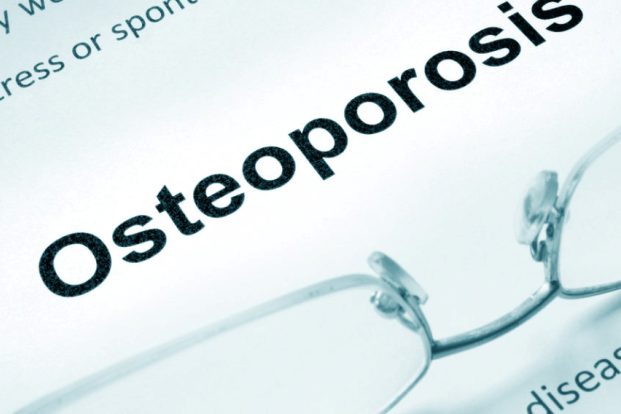What can be done to prevent Osteoporosis?
Apr 19, 2022
Osteoporosis is a non-communicable, systemic disease characterized by low density and micro architectural deterioration of bone tissue with a consequent increase in bone fragility.It is also considered as an inevitable episode of aging.Osteoporosis and fractures are not directly linked with aging or low BMD (Bone Mineral Density) but fractures can occur in normal persons also.Elder persons are at greater risk and often suffering from other compounding factors, which can increase the chances of falling and fractures. These may be due to poor eye sight,diabetes,renal disorders,depression, poor dietary intake and poor orientation and also the arrangement of furniture in the home. The following nutrients are helpful to prevent osteoporosis.

Calcium- It is critical for bone formation.Its intestinal absorption requires parathyroid hormone (PTH) and vitamin Di.e., D3 (Calcitriol). Calcitriol improves calcium absorption, particularly in pre-pubertal and post-pubertal age in women,but is less effective in post-menopausal women. Blood levels of calcium and parathyroid hormone are very critical in maintaining bone density.Low estrogen level reduces the response of osteoblasts to PTH. Intake of calcium with Vitamin D Supplement may reduce the risk of fracture and improve BMD.
Phosphorus– Ratio of calcium and phosphorus is very effective to prevent osteoporosis. The consumption of calcium and phosphorus rich foods, such as milk, curd, Ragi, small fish, puppy seeds, etc. are helpful to reduces the risk.
Magnesium– More than 50% magnesium is found in bone tissue. It serves as a co-factor for several enzymes and is useful in bone cellular functioning and bone fluids.
Vitamin K– It Plays an important role in the formation of osteocalcin, which is a bone specific protein made by osteoblast and needed for maturation of bones.Optimal intake of vitamin K helps in maintaining calcium homeostasis, bone health and reduction in risk of fractures.
Protein– Adequate protein is required for bone formation. Protein replenishment in patients with hip fracture can improve not only BMD, but also muscle mass and strength.
Isoflavones– Genistein and other isoflavounes have estrogen like activity and important for bone health.
Other Nutrients- Fluoride is incorporated into hydroxyapatite and increases the hardness of bones.Copper is needed for cross linking of collagen and elastin molecules.Magnese is required for biosynthesis of mucopolysaccharides in bone matrix formation. Vitamin C plays a vital role in formation and maturation of collagen. Zinc is present in enzymes needed for collagen synthesis and osteoblast activity. High sodiumalong with low calcium intake increases the risk of osteoporosis because it may increase urinary calcium loss.
The following points are also helpful to prevent osteoporosis.
- Regular consumption of milk and milk products.
- Regular intake of foods rich incalcium, phosphorus, protein and vitamin K.
- Avoid Smoking,excess tea & coffee and cola drinks.
- Regular exposure in sunlight is helpful in vitamin D absorption.
- Regular exercise to maintain integrity of bone tissue and BMD(Bone Mineral Density).
- Regular check up of BMD after the age of 50 years.






